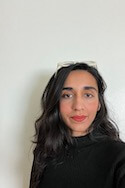Below are rosters of the 2023 class and 2022 class of Kaleidoscope Program Scholars:
2023 Kaleidoscope Program Scholars
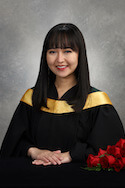 Aizle Bernardo
Aizle Bernardo
she, her, hers, herself
University of Alberta
Aizle Bernardo is in the MLIS/MBA program at the University of Alberta (U of A). She completed her bachelor of science in honors psychology at the U of A as well. Aizle’s undergraduate thesis was on resilience and executive function in early childhood. She has worked at the University of Alberta Library and Edmonton Public Library. She is currently doing a summer internship and will go back to school in fall 2023. She migrated to Canada when she was a teen with her family. Aizle feels extremely grateful for being able to carry and identify herself as a person of Canadian-Filipino heritage. She is extremely excited and honored to be a Kaleidoscope Program Scholar. She knows that the program will give her so much value and hopes to be able to positively make a difference in her time as a scholar and beyond. In her free time, Aizle loves swimming, reading, and hiking.
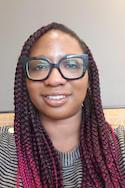 Adele Chase
Adele Chase
she, her, hers, herself
University of South Carolina
Adele Chase is a dedicated professional with a diverse background in libraries, psychology, and marketing. Through her work at Richland Library, she has developed a passion for libraries and community service. In her role as an associate, she provides exceptional customer service and assists patrons in finding resources and conducting research. Adele also develops and leads engaging programs for children and adults, focusing on diversity, creativity, mental-health resilience, and technology-skills development. Additionally, she plays a crucial role as the branch’s Collection Development liaison, managing the cataloging, weeding, and maintenance of physical materials. Her efforts to increase circulation include creating eye-catching displays and offering readers’ advisory services highlighting creators from marginalized communities.
Aside from her work at Richland Library, Adele is an active member of various library associations, demonstrating her commitment to professional development and advocacy. She is actively involved in the Richland Library Rainbow Committee, the South Carolina Library Association, the Association for Library Service to Children (ALSC), and the American Library Association. Within ALSC, she serves on the Children and Technology Committee, advocating for girls, nonbinary people, and people of color in STEM fields.
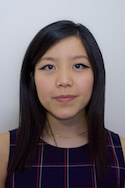 Tara Dorje
Tara Dorje
she, her, hers, herself
University of Michigan
Tara Dorje is a first-year master of science in information student at the University of Michigan School of Information. She earned her BA in art history with a minor in film, television, and media studies from the University of Michigan, where she received departmental honors for her undergraduate thesis on Asian American feminist video and performance art. She worked as a curatorial and development assistant for the University of Michigan Museum of Art and has held formative internships in curatorial, archives, and public programming departments at The Metropolitan Museum of Art, MoMA PS1, The Rubin Museum of Art, and Asia Art Archive in America. She is a 2023–2024 American Library Association (ALA) Spectrum Scholar.
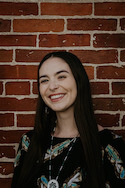 Sage Innerarity
Sage Innerarity
she, her, hers, herself
Simmons University
Sage Loyema Innerarity is a Miwok storyteller, writer, and citizen of the Ione Band of Miwok Indians from Elk Grove, California. She was a Mellon Mays Fellow and graduated magna cum laude from Amherst College with degrees in English and American studies. She was awarded the The George Rogers Taylor Prize for her summa-recommended thesis entitled “Stealing the Fire: (Re)claiming, (Re)telling, and (Re)covering Miwok Creation Stories and Oral Histories.”
As an undergraduate, Sage was co-president of the Native and Indigenous Students Association, a Financial Aid Peer Ambassador, a member of the Amherst College Sabrinas, and a varsity softball player. She also served as a DEI representative for her softball team and was a member of the President’s Anti-Racism Student Advisory Committee. Sage recently served as the Post-Baccalaureate Fellow in Native American Literature in the Robert Frost Library at Amherst College.
Sage is a member of Native Americans in Philanthropy’s 2023 Native Youth Grantmakers cohort with sponsorship from the Miwok Heritage Center. In the fall, she will attend Simmons University to pursue a master’s degree in library and information sciences with a concentration in cultural heritage and serve as the Dean’s Fellow for Social Media and Communications.
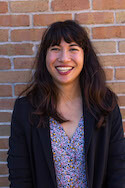 Maria Lee
Maria Lee
she, her, hers, herself
Simmons University
Maria Lee will graduate with her MLIS degree from Simmons University in December 2023. She also holds a bachelor’s degree in geography from the University of Minnesota Twin Cities. Maria was drawn to study archives and records management after working in the Minneapolis Department of Civil Rights and observing the politics of documentation firsthand. Since starting graduate school, she has had the opportunity to work for St. Paul Public Libraries, the US National Transportation Library, and the Arthur and Elizabeth Schlesinger Library on the History of Women in America. These various experiences have sharpened her commitment to information justice and helped her discover her professional interests in digital archives, research data management, and community-engaged scholarship. Maria lives in Columbus, Ohio, where she likes to bike along the Scioto River.
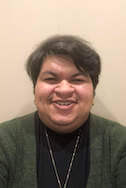 E. Roshan Panjwani
E. Roshan Panjwani
they, them, their, theirs, themself
The University of North Carolina at Chapel Hill
Roshan Panjwani is an incoming MSLS student at UNC Chapel Hill and a first-generation immigrant from Pakistan, and was a nontraditional undergraduate later in life, after a long career as a community organizer. Roshan received their BA in linguistics from NC State University in 2021 while working as an editorial student assistant at Duke University Press. Their undergraduate research studied the social distribution of linguistic variables in LGBTQ+ BIPOC Southerners, and their passion for archival work stems from documenting the political legacies of queer Southerners. Since graduating, Roshan has worked as a staff assistant at the David M. Rubenstein Rare Book & Manuscript Library at Duke University, leading a project to support digital access to the provenance and acquisition records of the over 10,000 manuscript collections.
Roshan is an aspiring reference and instructional librarian interested in methods of library instructional pedagogy that connect students to build collaborative relationships with archival texts, both as researchers and as authors of their own academic writing. Their interest in archival access has inspired them to work in the field of reparative and inclusive archival description, working to remediate and contextualize outdated or harmful language and to create archival description that is inclusive and community-centered.
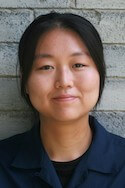 Grace J. Park
Grace J. Park
she, her, hers, herself
The University of British Columbia
Grace J. Park is a second-year dual master’s degree student of archival studies and library and information studies at The University of British Columbia (UBC). She earned an HBA in history and East Asian studies at the University of Toronto (UofT). At UofT, Grace developed an academic interest in the processes of memory-making and how historical narratives are created. She is also interested in the impact of language romanization in archives, libraries, and other information institutions. Grace has worked as a project archivist at the United Church of Canada Pacific Mountain Regional Council Archives and was a graduate academic assistant at the UBC Asian Library. In her proposed thesis, she will be examining the state of Korean Canadian archives and records, with particular consideration of the Korean War and the divided peninsula.
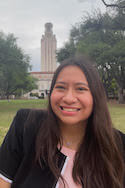 Maria Guadalupe Partida
Maria Guadalupe Partida
she, her, hers, herself
The University of Texas at Austin
Maria Guadalupe Partida is a graduate student at the School of Information and the LBJ School of Public Affairs at The University of Texas at Austin, where she is pursuing dual master’s degrees in global policy studies and information studies. Lupita was born and raised in the bordertown of Laredo, Texas, and is the daughter of Mexican immigrants. Previously, she has worked with local, national, and international government and nonprofit entities. After completing her BA in political science, Lupita was a Junior and Huntington Fellow at the Library of Congress’s Hispanic Reading Room, where she coauthored StoryMaps, blogs, and resource guides. Lupita is currently a graduate research assistant at the Benson Latin American Collection, where she engages in collection development efforts, answers reference questions from international and local patrons, and assists in exhibitions. In addition, Lupita is also a 2023 recipient of the Critical Language Studies (CLS) Program for Korean, a REFORMA Scholarship recipient, and a Hispanic Scholarship Fund (HSF) Scholar.
Syeda Quadri
she, her, hers, herself
North Carolina Central University
Syeda Quadri is a graduate student in the master of library science program at North Carolina Central University. Syeda earned her bachelor’s degree from NC State University with a BS in the biological sciences and a minor in Middle East studies. Syeda’s experiences using academic libraries as an undergraduate student reinforced her impressions of libraries as sanctuaries and places of discovery. Her passion for libraries led her to seek work at a private university library in Raleigh, North Carolina, where she continues to assist students, faculty, staff, and community members with their academic and research needs. As part of her work, she has been able to reconstruct the library’s Distance Education webpage by implementing a combination of audiovisual materials and textual information to meet the needs of distance learners. She has also gathered and analyzed data on user satisfaction of the library through the curation and administration of electronic library satisfaction surveys. Her current interests include expanding digital resource accessibility and digital literacy to patrons in a multitude of library environments.
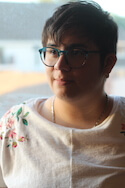 Izchel Quintero
Izchel Quintero
they, them, their, theirs, themself
The University of Arizona
Izchel Quintero is a neurodivergent, queer, migrant originally from Jalisco, Mexico, who’s been living in Nebraska for the past 10 years, where they received a BA in English, Spanish, and global studies, with a minor in gender studies, and where they have been doing research on how to improve the experience of migrants around the world. Izchel is an incoming master’s degree student in library and information science at The University of Arizona, as well as a Knowledge River Scholar at the same institution. They have a passion for writing, fanfiction, uncommon historical facts, and advocating for better access to information.
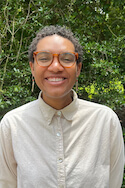 Jordan Rhym
Jordan Rhym
she, her, hers, herself
University of Michigan
Jordan Rhym is pursuing a master of science in information with a concentration in digital curation and archives at the University of Michigan. Jordan received her BA in cultural anthropology and a minor in African American and diaspora studies from Vanderbilt University. At Vanderbilt, she gained a passion for archives while working at the Special Collections and University Archives and completing her senior thesis on archiving protest chants and music through social media and oral histories. Following her graduation, Jordan took a gap year to explore her interest in archives and library studies by completing the Archives, History and Heritage Advanced (AHHA) Internship Program at the Library of Congress, where she worked with the American Archive of Public Broadcasting. In her graduate program, Jordan hopes to continue developing skills in archival research so she can better share the stories and voices of diverse communities through digital archives and collections. Jordan is a 2023–2024 American Library Association (ALA) Spectrum Scholar.
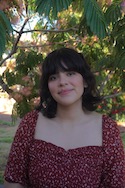 Ana Alicia Rico
Ana Alicia Rico
she, her, hers, herself
The University of Texas at Austin
Ana Rico recently completed her first year as an information studies graduate student at UT Austin, where she is also pursuing a graduate portfolio program in Mexican American and Latina/o studies. Ana grew up in the El Paso–Juárez border, and obtained her BBA in accounting with a minor in finance from The University of Texas at El Paso. Her passion for librarianship began when she interned for the El Paso Public Library, where she got the opportunity to have a direct, positive impact in the community. This passion was redirected towards US Latine librarianship after developing a digital scholarship project with the Onda Latina collection for the Benson Latin American Collection. She is particularly interested in accessibility of information and resources for underserved groups, archival silence, and zines. She is currently working as the Collection Development graduate research assistant for the Nettie Lee Benson Latin American Collection, where she processes gifts, aids in acquisitions, assists with community engagement efforts, and is curating a digital exhibit on zines.
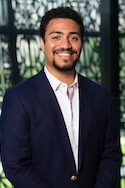
Jack Schmitt
University of Michigan
Jack Schmitt is a graduate student at the University of Michigan School of Information, studying library science and archives with a focus on managing and sustaining collections. Previously Jack worked as a professional actor for five years, performing at major theaters across the country. He is currently a Robert F. Smith intern at the Smithsonian National Museum of African American History and Culture, working offsite at Fisk University in their Black Oral History Collections. As a biracial man, Jack believes strongly in the value and impact of representation and aims to uplift stories of underrepresented communities and marginalized voices. He is a 2022–2023 American Library Association (ALA) Spectrum Scholar and serves as a student volunteer on the Society of American Archivists (SAA) Archival Repatriation Committee. He holds a BA in government and theater from Georgetown University and his professional interests include social memory and inclusive history. He will begin the University of Michigan’s museum studies graduate certificate program this fall.
 Andrea Serna
Andrea Serna
she, her, ella
University of Illinois at Urbana-Champaign
Andrea Serna is a second-year graduate student at the University of Illinois at Urbana-Champaign. Andrea is a first-generation student who received her BA in history along with minors in Spanish and sociology at DePaul University, where she discovered her passion for oral histories and the agency they provide historically marginalized communities to share their lived experiences. For her senior capstone, she researched the Bracero Program and Mexican laborer experiences in the US during WWII using oral histories. During her time at DePaul, she also worked with Muslim American oral histories at the Chicago History Museum and conducted her own oral histories on COVID-19’s impact on the DePaul community for DePaul’s Special Collections and Archives. Andrea is currently working as a graduate assistant at the University of Illinois and hopes to continue working in academic libraries after graduation. She is passionate about making academic libraries more accessible to marginalized students and hopes to foster meaningful partnerships with BIPOC student communities. Andrea is also a 2023–2024 American Library Association (ALA) Spectrum Scholar.
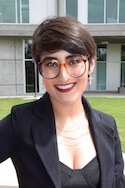 Michelle Sosa
Michelle Sosa
she, her, hers, herself
San José State University
Michelle Sosa is currently a first-generation graduate student completing the MLIS program at San José State University. In 2019, Michelle earned her BA in English from the University of California, Irvine (UCI), where she also minored in Chinese language and literature. Born in Mexico, Michelle moved to the US with her parents at the age of five years old; with her native tongue being Spanish, books quickly became an important part of Michelle’s life as they helped her develop her fluency in English. Years later as an undergraduate student at UCI, Michelle was introduced to the field of academic librarianship and felt immediately drawn to the career. Upon meeting several librarians from her university library and observing their work, Michelle felt inspired to contribute the same amount of dedication to the field. As a future academic librarian, Michelle wishes to create a welcoming environment and outreach opportunities for BIPOC students—especially DACA students. As a first-generation DACA student herself, Michelle holds first-hand experience with the struggles that the community faces regularly. Through her volunteer work and internship, Michelle is working towards strengthening her skills in pedagogy, outreach, collection development, and research.
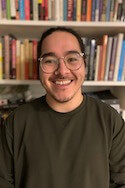 Joey Takeda
Joey Takeda
he, him, his, himself
University of Alberta
Joey Takeda is a Yonsei graduate student in the MLIS program at the University of Alberta, specializing in digital scholarship, sustainability, and digital preservation. Joey holds a BA (Hons) in English and gender studies from the University of Victoria and an MA in English literature from The University of British Columbia, where his research focused on Indigenous and diasporic literatures and anti-racist and decolonial approaches to textual studies, critical bibliography, and the digital humanities. He currently works as a developer in the Digital Humanities Innovation Lab at Simon Fraser University and has previously served as a researcher, programmer, and developer for a variety of digital humanities projects (including The Map of Early Modern London, the Landscapes of Injustice Digital Archive, and The Winnifred Eaton Archive). Joey’s interest in libraries and archives stems from his long-standing commitment to the capacity of digital infrastructures to unsettle dominant histories and foreground community-based knowledge.
2022 Kaleidoscope Program Scholars
Arianna Alcaraz
she, her, hers, herself
University of Alberta
Arianna Alcaraz is a first-generation Filipino immigrant settler living in Mohkinstsis (Calgary, Alberta). Born and raised in the Philippines, she migrated to Canada when she was 15, and later earned a BA in English literature from the University of Calgary. She is currently completing an online, part-time MLIS degree at the University of Alberta. Her academic and professional pursuits explore librarianship as both a discipline and a profession that upholds and enacts systems of bias and inequity, which she hopes to address through scholarship, leadership, and community-building within the field. She previously served as Michigan State University Libraries’ first Diversity Scholar, where she was involved with an assessment project that aimed to identify best practices for educating library workers in issues related to diversity, equity, and inclusion. She is also co-writing a book chapter about knowledge organization as a method of intellectual and spatial resistance in the context of Filipiniana collections. Arianna aspires to make a meaningful impact on the field as an academic librarian, with a focus on critical librarianship as scholarship and embodied practice. In addition to being an ARL Kaleidoscope Scholar, she is also a 2020–2021 American Library Association (ALA) Spectrum Scholar and a recipient of the 2021 American Association of Law Libraries (AALL) George A. Strait Minority Scholarship and Fellowship.
Melissa Aslo De La Torre
she, her, hers, herself
The University of Texas at Austin
Melissa Aslo De La Torre (she/her/ella) is a dual master’s student at The University of Texas (UT) at Austin School of Information and the Teresa Lozano Long Institute of Latin American Studies. Melissa received her BA in religion from Reed College in 2013, where she worked as a student assistant at Hauser Memorial Library. As a first-generation immigrant and college student, she hopes to make libraries and archives more accessible. Her research focuses on archival praxis among queer communities in the US-Mexico borderlands and Latin America, exploring the intersections of queer archival praxis, visual culture, and digital archives as activism. She is particularly interested in the emergence of digital memory projects and archives on social media platforms by and about queer Latine/x communities. Since fall 2021, as a graduate research assistant at UT’s Benson Latin American Collection, she has processed Latine artists’ papers, photograph collections, and co-curated the exhibit “Martín Fierro: From Marginal Outlaw to National Symbol.” In September, she will begin a two-year graduate research assistantship in library instruction at the Harry Ransom Center. Melissa is also a 2022–2023 American Library Association (ALA) Spectrum Scholar.
Imani Benjamin-Wharton
she, her, hers, herself
Valdosta State University
Imani Benjamin-Wharton is an incoming MLIS graduate student at Valdosta State University. In 2019 she received her BA in English with a minor in film with advanced honors from Georgia State University. Her interest in archiving began while working at the Gwinnett History Museum, researching the historic houses and colonial families of Gwinnett county. Currently, she works as a library specialist at Emory University in the Robert W. Woodruff Main Library. Her interests include expanding access to Caribbean census records and creating community-based archives for records and oral histories. Being a second-generation Guyanese American, she saw the need to develop archives that preserve the history and ancestry of Caribbean Americans. Her goal is to become an archivist to diversify documentation available to genealogy collections by digitizing Caribbean records.
Jennifer Nguyen Bernal
she, her, hers, herself
University of California, Los Angeles
Jennifer Nguyen Bernal is an incoming MLIS student at the University of California, Los Angeles. She graduated from the University of California, Davis, with a bachelor’s in Asian American studies and Chicanx studies. Her current passion is researching the intersection of ethnic studies and library and information studies by focusing on open access to information sources for social justice aims. During her undergrad years, she worked on her research on voicing the lived experience of solidarity between the Southeast Asian and Latinx undocumented communities. She worked on various projects to support the Filipinx community, like the Welga Digital Archive, creating educational materials for communities of color, and published podcast episodes that made the community’s needs evident by collecting testimonies at the Bulosan Center for Filipinx Studies.
David Castro
San José State University
David is an aspiring metadata/cataloging librarian who wishes to broaden his work and aims to bridge the gap between people of color and their representation in traditional cataloging. In 2018, he earned a BA in history from the University of California, Los Angeles (UCLA). At UCLA, David developed a strong interest in the preservation of cultural artifacts through his appointment as “ourstorian” for Samahang Pilipino, a student-run organization on campus. This experience led David to pursue his MLIS at San José State University, focusing his pathway on information organization, description, analysis, and retrieval, along with a secondary focus in data-assets management. Currently, David is a metadata archivist at the Chinese Historical Society of Southern California (CHSSC). Working both independently and collaboratively with local archivists and technology specialists, he has been sorting and organizing digital assets of several archival collections for display on the society’s Omeka platform. In addition to his work at CHSSC, David is a library assistant at the Getty Research Institute, where he aids patrons and staff in acquiring archival materials for their research and exhibition use.
Amanda Chaplin
she, her, hers, herself
University at Albany, SUNY
Amanda Chaplin is an information science graduate student concentrating in archives and records management at the University at Albany. She graduated summa cum laude from Russell Sage College with a BA in history with a globalization and international studies concentration. Amanda’s interest in archives began as an intern at Martin Van Buren National Historic Site, where she assisted with the processing of letters written by President Van Buren. Amanda was named the Cynthia Crocco Spector (‘74) and Sherman David Spector Fellow in 2018, for her proposal to research Black Loyalist settlements in Nova Scotia, Canada. She utilized the Nova Scotia Archives to trace her Black Loyalist heritage. Amanda developed a passion for digital archives during her time in Canada. She believes, through digital archives, information can cross international borders and become more widely available to minorities. Her goal is to create more accessibility of archives and records through digitization to uplift communities of color. Currently, Amanda is employed at the Rensselaer Public Library, where she serves her local community.
Ariana Cook
Syracuse University
Ariana Cook will be starting as a master’s student at Syracuse University in the fall of 2022. Ariana intends to focus on literacy equity within the library and information field because equal and fair access to information and knowledge is a powerful right of every individual. It is both a privilege and a source of pride to be a part of a university and intellectual community where she can work to foster diversity and create equity within the library and information field.
Kesheena Doctor
she, her, hers, herself, they, them, their, their, themself
San José State University
Yá’át’ééh shik’éí dóó shidine’é. Shí éí Kesheena Doctor yinishyé. Tótsohnii nishłį́ Tsinnijinnie bashishchiin Áshįįhí dashicheii Táchii’nii dashinalí. Ákót’éego diné asdzáán nishłį́. Tsiizizii déé’ naashá. Kesheena Doctor is Diné (Navajo) from the Dinétah area of Leupp, Arizona. They hold a BA in women’s studies from Portland State University and are a Nancy Ryles Scholarship recipient and a Chief Manuelito Scholar. Kesheena’s interest in librarianship stems from their community zine work with the Independent Publishing Resource Center, WOC Zines, and the Portland Zine Symposium, where they collaborated with many zinesters who also worked as librarians. Kesheena intends to center their librarianship on promoting Indigenous narratives, Indigenous knowledge, and Indigenous self-expression with zines and digital media. They explored this concept while making their ongoing zine series, Going Places. She attributes her dedication to collaborative projects and community building to her Diné cultural values and witnessing her grandparents’ community work. They are excited to be a part of the Kaleidoscope Program to help realize their goals as a librarian serving Indigenous communities. Kesheena currently resides in Balbancha, the Chahta (Choctaw) namesake of the New Orleans, Louisiana, area.
Blanca Garcia-Barron
she, her, hers, herself
San José State University
Blanca Garcia-Barron is currently a graduate student in the MLIS program at San José State University. She earned a BA in public and oral history from California State University, San Bernardino, in 2016. As an undergraduate, she worked in public libraries where she combined her dedication to public history, research, and community in her work. This enabled her to work in public programming and library grants focused on Latinx history. She pursued doctoral studies in Borderlands history at The University of Texas at El Paso. Though, as a first-generation Brown student in academia, the road was difficult, and she decided to pivot careers in 2020. Her experiences in academia emboldened her to become a fierce advocate of BIPOC students, their success, and equity in higher education. Now, through librarianship, Blanca has found a renewed sense of self and a place where her advocacy of BIPOC students is central to her practice. Currently, her research focuses on the experiences and information access of fronterizx and transfronterizx students on the US-Mexico border. Her praxis is informed by scholarship on border pedagogy, radical empathy, and critical librarianship, as well as the student and border communities of El Paso, Texas, who introduced her to critical consciousness.
Zahra Garrett
Simmons University
Zahra is currently enrolled in the MLIS program at Simmons University, with a concentration in cultural heritage informatics. Zahra is especially interested in outreach and education, and hopes to make supporting nontraditional users of special collections and academic libraries a focus in her future career. As a former performing arts professional, a particular interest is encouraging use of special collections, archival, and academic library resources by performing artists. Zahra is also interested in exploring how libraries and other cultural heritage institutions can use technology in creative ways to enhance (rather than replace) services. Zahra is a 2021–2022 American Library Association (ALA) Spectrum Scholar.

sourav guha
San José State University
sourav guha has experience across a broad variety of roles in the public, nonprofit, and postsecondary sectors, including several years working on issues pertaining to representation, access, and inclusion in US higher education. A child of immigrants who were themselves born colonial subjects of the British Raj, sourav has deep-seated interests in issues of distributive and restorative justice. At present, they coordinate the activities of the Consortium on High Achievement and Success (CHAS), a platform for peer learning, networking, and professional development opportunities aimed at advancing strategies to better support students, faculty, and staff of color at member institutions. Prior to joining CHAS, they were a researcher for Vassar College’s Engaged Pluralism Initiative, a Mellon Foundation–funded project aimed at fostering a sense of affirmation and belonging on campus, particularly among students from historically underrepresented backgrounds. On occasion, sourav engages in teaching and writing. In fall 2022, they are teaching a course at Connecticut College on contemporary Indian politics. Last year, they contributed an essay, “Sustainability without Justice Just Sustains Injustice,” to an anthology published by the Association for the Advancement of Sustainability in Higher Education (AASHE).
Vita Kurland
they, them, their, their, themself
New York University and Long Island University
Vita Kurland (they/them) is a dress historian, archivist, and memory worker. They are enrolled in a dual-degree master’s program at New York University and Long Island University in costume studies and library and information science. Vita approaches the study of dress and material culture from an interdisciplinary standpoint, pulling from their background in art history and interest in archival and curatorial practice. Their goals are to amplify the importance of material culture histories—explicitly textiles and dress—as worthy of archival stewardship. Their work is centered around bringing marginalized histories to the forefront of archives and education. Vita was born and raised in NYC and holds their BA in art and aesthetics from Bard College Berlin (BCB).
Amina Malik
she, her, hers, herself
University of Illinois at Urbana-Champaign
Amina Malik is a first-year MLIS student at the University of Illinois, where she also earned her BA in history, focusing on public history and community archival work. Amina is from Lahore, Pakistan, and her research focuses on preserving the mobility and cultural history of the Ahmadiyya community—who face extreme religious persecution throughout South and Southeast Asia. Her interest in critical librarianship and archival sciences solidified through various projects within public history—notably History Harvest, a digital humanities database for which her teammates worked with the Fifth & Hill community, a residency in Champaign that has been affected by environmental racism, and with the LGBTQ+ community in Champaign-Urbana, to establish online memory banks that display joys and grievances of the two groups. She has since been an advocate of appraising histories of marginalized communities and restoring recordkeeping among those who experience inequity at a standpoint account. During fall of 2022, Amina will join Research Data Service at the University of Illinois and looks forward to providing data-preservation and publication services to the Illinois research community.
Christiana McClain
she, her, hers, herself
University of Maryland
Christiana McClain is currently enrolled in the MLIS program at the University of Maryland, College Park. She is specializing in archives & digital curation and museum scholarship & material culture. In 2018, she received her BA in English from Spelman College and continued on to receive her MFA in fiction writing from the Southern Illinois University Edwardsville in 2021. Her passion for archival work stems from documenting the lives and legacies of the Black and queer community. In the future, she’d like to combine her love of literature with museums scholarship and archiving practices.
Ezekiel Amari McGee
they, them, their, their, themself
Syracuse University
Ezekiel Amari McGee is an MLIS graduate student hoping to work in the archival field. They have a long-standing interest in popular culture, particularly in regards to born-digital media, film, music, and television. They were born and raised in Michigan, but are currently residing in Rochester, New York, with their cat Sid.
Inbar Michael
University of Illinois at Urbana-Champaign
Inbar Michael is an incoming MLIS student at the University of Illinois at Urbana-Champaign. In 2021, they received a BA in history, with a minor in humanities and law from the University of California (UC), Irvine. While at UC Irvine, they published two papers through Johns Hopkins’s Macksey Journal, one focused on American Jewish solidarity in the 1970s–1990s in support of Soviet Jews, and the other focused on the impact of US imperialism on the Mexican oil industry in the early 1900s. While these are two different topics, Inbar’s focus in their undergraduate education was US history, and more specifically foreign and national politics, in the 20th century. Following their graduation, they took a gap year through the AmeriCorps program of City Year, where they realized their passion for community outreach. Inbar is interested in studying the preservation of marginalized histories in local communities, as well as how libraries can be utilized as centers that promote diversity and inclusion, particularly when it comes to intersectionality within the LGBTQIA+ community. They are also a 2022–2023 Spectrum Scholar.
Alona Norwood
she, her, hers, herself
The University of North Carolina at Chapel Hill
Alona Norwood, age 23, is originally from Northeast Tennessee. She obtained her BA at Berea College in peace and social justice. Through her work as a community archivist at Black in Appalachia, Alona has worked to uplift the voices and bolster the contributions of Black people in the development of the Mountain South. Alona brings communities together to record oral histories, digitize material culture, and present it back in a meaningful way. She is currently pursuing her master’s degree at The University of North Carolina at Chapel Hill, where she will be working at the North Carolina Digital Heritage Center. Her studies will allow her to continue engaging communities through equitable archival practices. This work is important because it dispels the inaccuracies of Appalachian stereotypes while giving people a sense of autonomy and pride in where they come from. Alona’s long-term goal is to shift the mainstream narrative about what it means to be Appalachian.
Vivian Poon
she, her, hers, herself, they, them, their, their, themself
University of Alberta
Vivian Poon is an MLIS candidate at the University of Alberta. They received their bachelor of arts in English literature with a minor in film studies in 2018. Afterwards, Vivian began an after degree in secondary education, where they learned about open educational resources (OERs) and their importance in helping disabled and historically marginalized students. Meanwhile, they worked at the Centre for Writers, where they helped other students improve their academic writing. Having a background in secondary education and tutoring has inspired them to research OERs as an MLIS student and a Kaleidoscope Program Scholar. Vivian hopes to use this experience to pursue a career at a postsecondary institution with strong OER potential. Alternatively, they hope to introduce OER programs to postsecondary institutions that have not yet implemented OERs for their students. As a future academic librarian, they plan to find or create existing OERs that can help disadvantaged students or English language learners.
Ruth Xing
Syracuse University
Ruth Xing is currently pursuing their master’s degree in library and information science at Syracuse University. True to their interdisciplinary interests, Ruth spent their undergraduate years at Cornell University exploring a wide range of subjects, ultimately graduating with bachelor’s degrees in English and psychology. Ruth is an aspiring medieval studies librarian/archivist, researcher, and professor; in these capacities, Ruth hopes to serve international learners and scholars and to manage and contribute to medieval scholarship in multiple settings. One of Ruth’s greatest goals as a librarian of color is to advance the perspectives of people of color in medieval studies, a largely white-dominated field that routinely discourages scholars of color. In addition to being a medievalist, Ruth is also a multilingual language learner, a multi-instrumentalist, and, quite frankly, a frequent utterer of the phrase “I have too many hobbies.”











